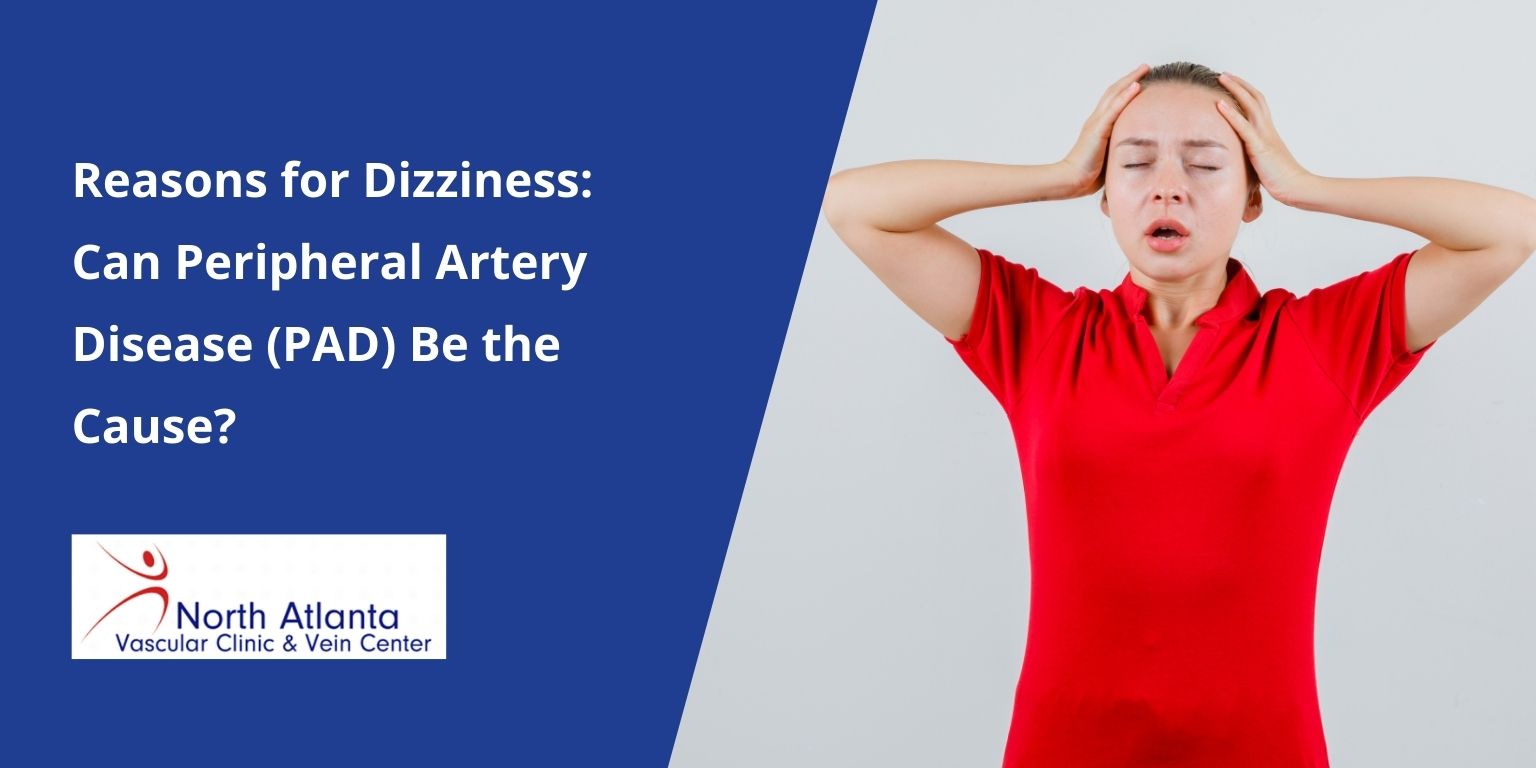
4/3/2025
Dizziness is a common complaint, affecting around 15–20% of adults annually. It may feel like lightheadedness or a spinning sensation, and frequent episodes can disrupt daily life. While many link dizziness to inner ear or neurological issues, vascular conditions are often overlooked. One such condition is Peripheral Artery Disease (PAD), which reduces blood flow to the limbs due to narrowed arteries. When circulation is compromised, less oxygen reaches the brain, which may lead to symptoms like dizziness, fatigue, or even confusion. This raises an important question: can PAD cause dizziness? So, let’s break down how PAD-related dizziness feels, why it happens, and what steps you can take if you're experiencing it.
Dizziness can occur due to multiple reasons, some more benign than others. Identifying the underlying cause is key to effective treatment. Some of the most common causes of dizziness include:
Dizziness and lightheadedness are often used interchangeably, but they are distinct sensations.
Both can stem from insufficient oxygen reaching the brain, often caused by circulatory problems. Poor blood flow due to conditions like PAD may result in these symptoms, especially in individuals with underlying risk factors.
Some people experience dizziness when changing positions, particularly when lying down. This sensation can stem from two primary causes:
PAD is a vascular condition that results from narrowed or blocked arteries, primarily in the legs, due to plaque buildup. This restricts blood flow, leading to symptoms such as leg pain, cramping, and in some cases, dizziness.
While PAD is more commonly associated with leg discomfort, it can also impact overall circulation, potentially leading to dizziness. Here’s how:
Certain individuals are more susceptible to developing PAD, which in turn increases the likelihood of circulation-related dizziness. Risk factors include:
While occasional dizziness may not be alarming, persistent or severe dizziness warrants medical attention. Individuals should seek professional evaluation if they experience:
Dizziness is more than just a fleeting discomfort, it can be a sign of underlying health issues, including vascular conditions like Peripheral Artery Disease (PAD). While often dismissed or misattributed, circulation-related dizziness deserves serious attention, especially if it occurs alongside risk factors like diabetes, smoking, or high blood pressure. Understanding the connection between PAD and dizziness can lead to earlier diagnosis and better outcomes.
If you're wondering “can PAD cause dizziness?” and find yourself dealing with unexplained episodes, it’s time to seek expert help. At North Atlanta Vascular Clinic, our vascular specialists are equipped to uncover the root causes of your symptoms and create a treatment plan personalized to your needs. Don’t let dizziness disrupt your life, schedule a consultation today and get the answers you deserve.
Leave a Reply Cancel reply